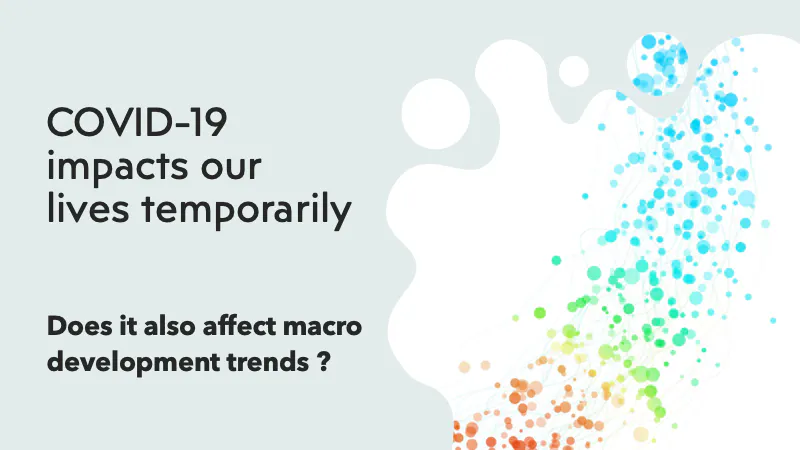COVID-19 impacts our lives – mainly temporarily
December 2021

The COVID-19 pandemic has been the most disruptive crisis in living memory for most Europeans. Until 2020 it was just one of many wild cards: An event with low likelihood to happen, but dramatic consequences if it does. This is exactly what we have been experiencing the last two years.
But for how long? In 2021, we discussed the impacts of the pandemic on medium-to long-term developments trends in various studies to the European Commission, European Committee of the Regions and the European Parliament. Reflections from these studies show that the effects of the pandemic are fed by the behavioural changes and restrictions. In fact, the pandemic itself has not so much created new socio-economic and development trends, but slowed down some existing and accelerated some other emerging trends, affecting the maturity of trends, not so much the trends themselves. In short, although the pandemic seems to have substantially changed our lives in the short-term, its effects in the long-run seem to be less.
Accelerated trends
The pandemic has accelerated trends which were already around in 2019. Examples for such trends are digitalisation, hyperconnectivity and the shift to omnichannel futures, the retreat to the private and cocooning, as well as tendencies towards widened social gaps and increased inequalities between social groups. Just to mention two examples in further detail:
To read this post you'll need to become a member. Members help us fund our work to ensure we can stick around long-term.
See our plans (Opens in a new window)
Already a member? Log in (Opens in a new window)


